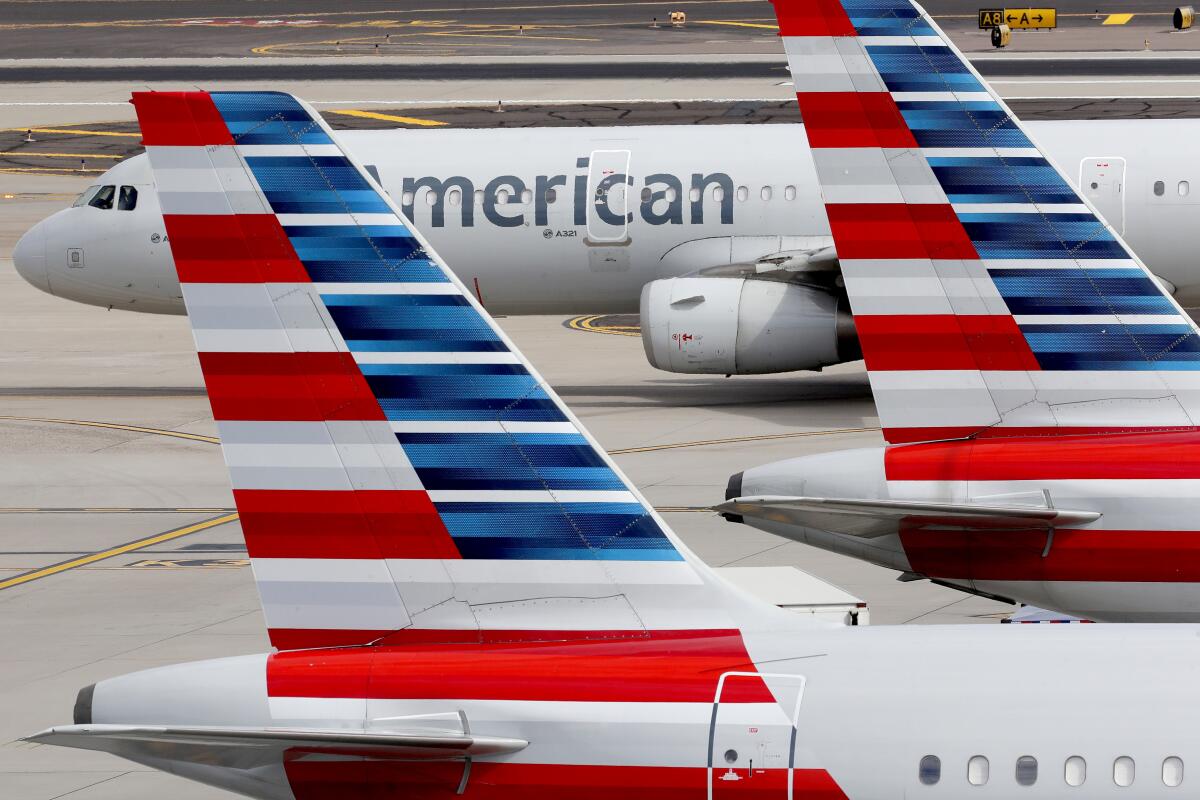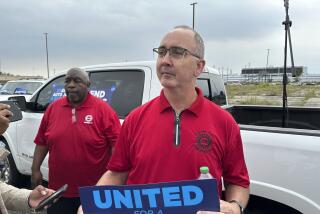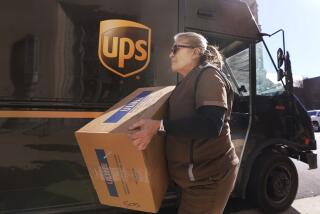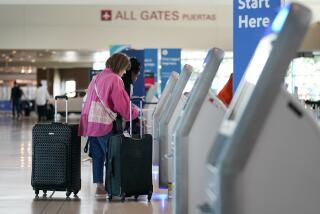As job cuts loom, airlines and their unions lobby hard for federal aid

Air carriers and their unions on Tuesday ratcheted up pleas for an extended COVID-19 aid package to forestall layoffs, but a sudden Supreme Court vacancy and partisan rancor are dimming the prospects.
“At this point, it looks like everything is pretty much frozen,” said former Sen. Byron Dorgan, who served on the committee overseeing transportation policy. “It doesn’t look like anything is going to happen.”
Weeks of lobbying, trips to the White House by airline executives and the prospect of massive job losses in states where incumbent Republican senators face tough reelection challenges — such as Georgia, Arizona and Colorado, all home to airline hubs — haven’t resulted in movement.
The frustration was evident at a press conference Tuesday outside the Capitol, held by a group of airline executives, union leaders and lawmakers from both parties.
“I just can’t believe that we may not be able to do the right thing simply because our elected officials can’t come to any sort of compromise agreement,” said Doug Parker, chairman and chief executive of American Airlines Group. “We’re better than that.”
Unless Congress acts, airlines plan to lay off tens of thousands of workers Oct. 1, just weeks before the election.
An aid package passed in March provided $25 billion for the hard-hit airline industry to prop up payrolls. In return, carriers were required not to cut jobs and to maintain minimum levels of service. But all that protection comes crashing down in a week.
A broad coalition that includes Republicans, Democrats and President Trump has been calling for extending the airline aid, yet it hasn’t gotten a green light from key players, notably Senate Majority Leader Mitch McConnell (R-Ky.).
House Speaker Nancy Pelosi (D-San Francisco) has said she’d consider the aid only as part of a larger stimulus package — for which talks are at a standstill.
Pelosi and Rep. Peter A. DeFazio (D-Ore.), chairman of the House Transportation and Infrastructure Committee, spoke to airline executives and labor leaders in separate phone calls Friday.
Rep. Hakeem Jeffries of New York, chairman of the House Democratic Caucus, said Tuesday that he does not expect the matter to be addressed in a bill separate from a broader stimulus relief measure.
“There are discussions taking place at a high level,” Jeffries said. “The Republicans are paying lip service to the notion that we should step in to the situation, but we really haven’t seen any movement in that regard.”
The lack of action, despite bipartisan letters of support and bill introductions, is prompting unusually blunt language from participants seeking help.
“Without a hard and public commitment from Leader McConnell to schedule a vote before Oct. 1, this is nothing more than election-year political grandstanding,” Julie Hedrick, president of the Assn. of Professional Flight Attendants at American, said in a statement. “If we are going to save the airline industry, we have to do it now.”
Sara Nelson, president of the Assn. of Flight Attendants-CWA union, said in an interview: “We need leadership here to just simply do what every member across every party and the White House agrees needs to be done.”
Four people familiar with the negotiations, including a Hill staffer and industry lobbyists, said they’re not optimistic there’s enough time or political will to pass an airline aid package before Oct. 1.
There also has been some grumbling that airlines shouldn’t be singled out for relief while restaurants and other travel businesses suffer equally or worse, several said.
Still, they said, it’s impossible to rule out some kind of swift action that could result in new airline aid.
“The way things work in Congress, it looks like nothing is happening, and then all of a sudden, it’s done,” said Dorgan, who is a senior fellow at the Bipartisan Policy Center and an advisor at the Arent Fox law firm.
Sens. Roger Wicker (R-Miss.) and Susan Collins (R-Maine) introduced legislation Monday that would provide $28 billion in aid for passenger and cargo airlines, as well as their contractors. No vote is scheduled on the bill, and a spokeswoman for the Commerce Committee, which Wicker chairs, declined to comment on its prospects.
American has said it will furlough 19,000 workers Oct. 1. United Airlines Holdings will lay off as many as 16,000. Delta Air Lines and Southwest Airlines Co. have said they will avoid most forced cuts for now, after tens of thousands of workers retired early or took leaves of varying length.
Joe DePete — president of the Air Line Pilots Assn. union, which represents more than 60,000 flight crew members — said at the press conference that carriers can’t just “flip a switch” and rehire workers who have lost their jobs. Pilots, flight attendants and mechanics all must be certified by the government and receive training that makes hiring cumbersome, DePete said.
“October is too late,” he said. “November is way too late. Airline relief doesn’t work retroactively.”






